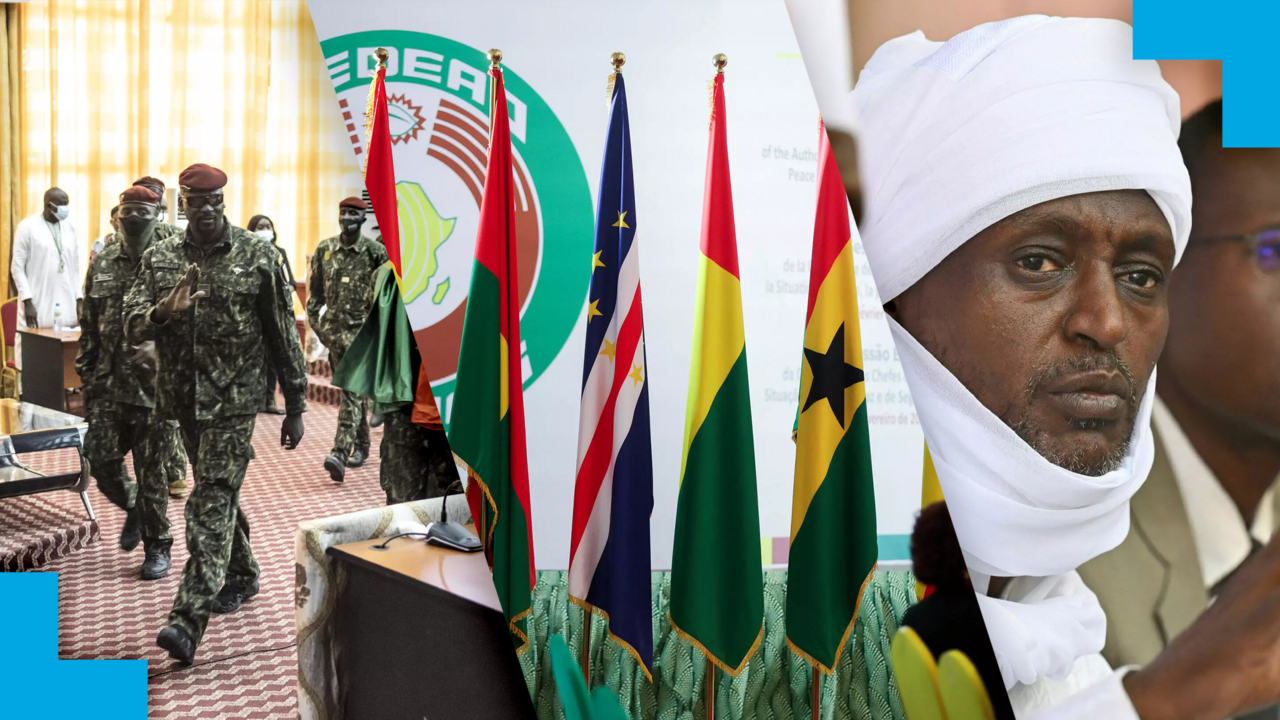The heads of state of the member countries of the Economic Community of West African States (ECOWAS) decided, Saturday February 24, to lift part of the sanctions against Niger, announced in Abuja the president of the Regional Organization Commission.
The latter announced the reopening of Niger's borders and airspace, the authorization of financial transactions between ECOWAS countries and Niger, and the unfreezing of Niger state assets "for humanitarian reasons".
The ECOWAS president also called for "the immediate release" of deposed Nigerien president Mohamed Bazoum, detained with his wife by the military regime for seven months.
In Guinea, a general strike announced as "unlimited" paralyzed the capital Conakry on Monday.
A movement launched by the country's public and private sector union centers in a climate of growing social tension after the junta dissolved the government.
Closely followed for three days, the movement was suspended on Wednesday evening with a resumption of negotiations after the release of a press unionist, considered a prerequisite for any discussion.
Yaya Diallo Djerou, main opponent of Chadian general Mahamat Idriss Déby Itno, was killed Thursday in an assault by the army which accused him of having led, the day before, a deadly attack against the premises of the intelligence services.
His supporters denounce "an assassination" to oust him from the presidential election scheduled in two months.
After 25 years of presence, and at the request of Kinshasa, the UN force in DR Congo began its withdrawal on Wednesday.
The organization's first base in South Kivu has officially returned to the control of the Congolese authorities while the region, located in the east of the country, is experiencing a resurgence of violence.
In Burkina Faso, the muzzling of dissenting voices continues, outside any legal framework
A month after his arrest, Burkinabè lawyer Guy Hervé Kam remains locked up, without hope of trial.
Yet he was the most famous defender of silenced voices.
In Ouagadougou, forced requisitions and kidnappings of opponents continue.
Burkinabè lawyer Guy Hervé Kam, November 12, 2014 in Ouagadougou.
© Issouf Sanogo, AFP
After 18 months of estrangement, France and Morocco wish to open a new chapter.
It is with this in mind that the French Minister of Foreign Affairs, Stéphane Séjourné, went to Rabat to meet his counterpart Nasser Bourita.
To talk about it, France 24 received, in the Journal de l'Afrique, Khadija Mohsen-Finan, specialist in the Maghreb and teacher at the University of the Sorbonne.
06:39
Morocco-France: after 18 months of tensions, the two countries resume dialogue © France24
Samuel Eto'o: "I am believed to intend to become head of state in Cameroon"
Samuel Eto'o, president of the Cameroon Football Federation and legend of the Indomitable Lions, looked back on Cameroon's journey during the 2024 African Cup of Nations, on the future of coach Rigobert Song and on the controversies that have been around for several months, during an exclusive interview given to France 24.
12:28
Face to face © France 24
Senegal: after six months without classes, students return to university
Students are returning without enthusiasm to the University of Dakar, which is reopening after months of closure linked to political unrest.
Senegal: after six months without classes, students return to university
View this post on Instagram
A publication shared by FRANCE 24 (@france24)
The France 24 summary of the week
invites you to look back at the news that marked the week
I subscribe
Take international news everywhere with you!
Download the France 24 application

